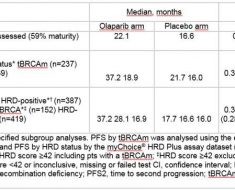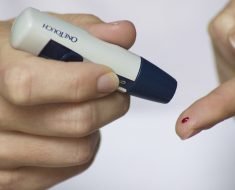Age and older adults are largely obscured in media representations of cancer, according to a study published in the open access journal BMC Public Health. It is important that older adults appreciate their heightened risk of cancer, as a lack of awareness may have a negative impact on early presentation and detection, a team of researchers led by the University of Glasgow Institute of Health and Wellbeing suggest.
Dr Sara Macdonald, the corresponding author said: “Age is an increasingly important risk factor for cancer. Almost three quarters of those who receive a diagnosis are over 60 and an increasing number are over 75. Yet, the importance of age is rarely addressed in stories about cancer and older adults are significantly under-represented. We looked at print media coverage two time periods – 2003-04 and 2013-14 – because we hypothesised that as life expectancy increases, age would grow in importance in media representations of cancer but we found the opposite.”
The authors analysed representations of four common cancers – breast, colorectal, lung and prostate cancer – in 800 articles from four UK national daily newspapers and their Sunday counterparts: Daily Telegraph and Sunday Telegraph, Daily Mail and Mail on Sunday, Daily Express and Sunday Express, and Daily Mirror and Sunday Mirror. These papers were selected as their readers tend to be older.
The authors found that while more articles about cancer were published in 2013-2014, this did not correspond to an increased number of articles linking cancer with advanced age. Overall, fewer than 15% of articles mentioned an association between age and cancer, and only 2.5% of articles discussed the importance of age in depth.
A total of 317 articles were published about cancer in 2003-2004, and 483 in 2013-14, with breast cancer being the most common focus of articles in both time periods. While the proportion of articles that mentioned age as a risk factor for prostate, lung and colorectal cancer remained stable, the proportion of articles mentioning age as a risk factor for breast cancer decreased by 14%.
Among stories that featured personal narratives of those who had been diagnosed with cancer, the people portrayed in the articles were typically younger than 60. The authors identified 121 articles describing celebrities with cancer, of whom 43 (35.5%) were 61 years or older, while in 114 articles describing the experience of non-celebrities with cancer, only 18 (15.8%) were aged 61 years or older.
Dr Macdonald said: “If newspapers are a significant source of information, older adults may not see themselves represented as potential cancer sufferers and this may reinforce the idea that they may no longer be at risk. Older adults in the UK tend to be less aware of cancer risks and symptoms, be more likely to have their cancer diagnosed at a late stage and have their cancer diagnosed in an emergency. This is associated with poorer outcomes.”
Dr Macdonald added: “Two measures are necessary to counteract the misrepresentation in the media. Those designing awareness campaigns need to be mindful of the older adult gap and present images and pictures that better reflect cancer incidence. More radically, it is important to develop reporting guidelines for the media to address the imbalance in stories about cancer.”
Source: Read Full Article





